
Plan and Protect
An article about planning for safe caregiving when dealing with substance use.
Written by Anne Auld, Deputy Director, Illuminate Colorado
Parenting is hard, and using substances around children can make it even harder. When substance use gets in the way of providing the best care for your child, it’s important to have safety plans and practices in place. The good news is, you may already be doing some of these things!
Taking Care of Children
To ensure children are cared for, there are a few key factors to keep in mind.
- Plan ahead with other trusted adults. Talk with children about who they can reach out to in an emergency, and practice calling them. When traveling, identify a safe driver.
Reduce risks by talking with children and other trusted adults about how someone who is using a substance may act and signs to know when it’s time to reach out for help. Consider making a plan for children’s care in the aftermath of a caregiver’s substance use, too, when there may still be lingering effects of the substance impacting the caregiver’s mood.
- Choosing a caregiver. Children of different ages have different needs. And choosing a caregiver who understands these needs and can respond appropriately is key. If you need alternate care for your child, consider someone who knows how to pick up on children’s cues — like when it is time for feeding, playing, or diaper changing.
Storage
Keeping substances out of reach of children is important and an easy step in creating a safer environment for your family. There are already things in our homes we store away from children, like cleaning products and chemicals. Substances, including alcohol, should be safely stored behind a locked cabinet door or in a lockbox. Children are very curious and determined! It isn’t enough to just put the item “out of reach.”
Building Connections
As a parent or caregiver, it’s also important to find ways to take care of yourself. One way is building healthy relationships with other adults who can help share the load. Look for some activities in your community like:
- Peer-to-peer recovery groups
- Parenting groups
- Faith-based connections
- Or, start a group in your neighborhood
Having a strong support system around your children is another step you can take! Create ways for your child to build healthy relationships outside of the home. Check out your early childhood program, school, library, recreation center, or search for local events online for ideas.
As your child’s first teacher, model asking for help, and help children practice asking for what they need. Learning how to ask for help is a lifelong skill. You are doing amazing things; keep them up!
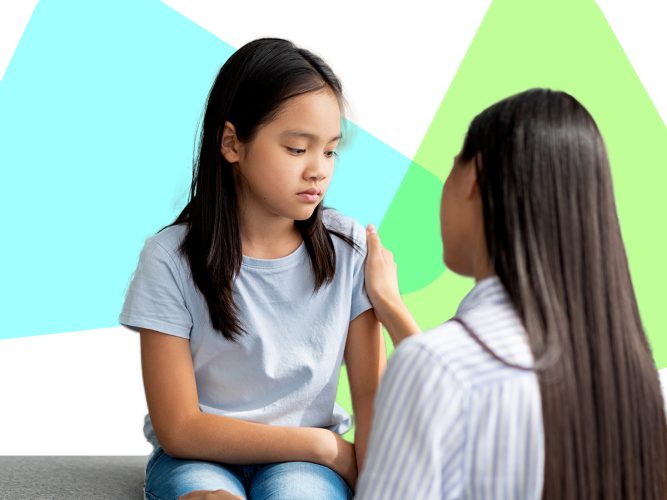
Guest Post: When Plans Don’t Go As Planned
When routines and plans get interrupted, there are ways to talk with children and show them that they’re still safe and loved.
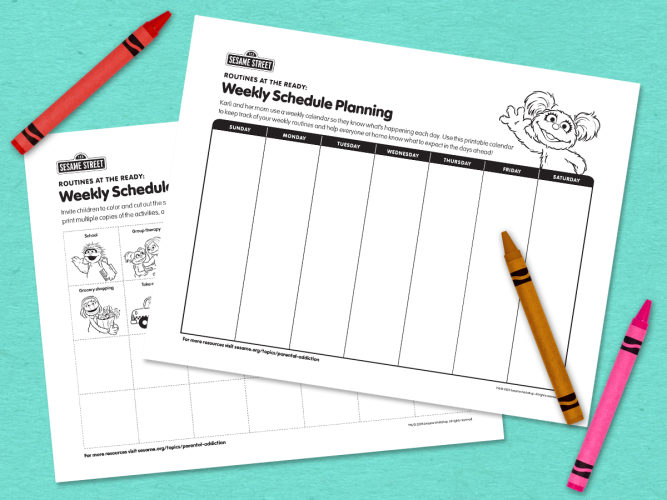
Routines at the Ready: Weekly Schedule
A printable tool for keeping up with routines.
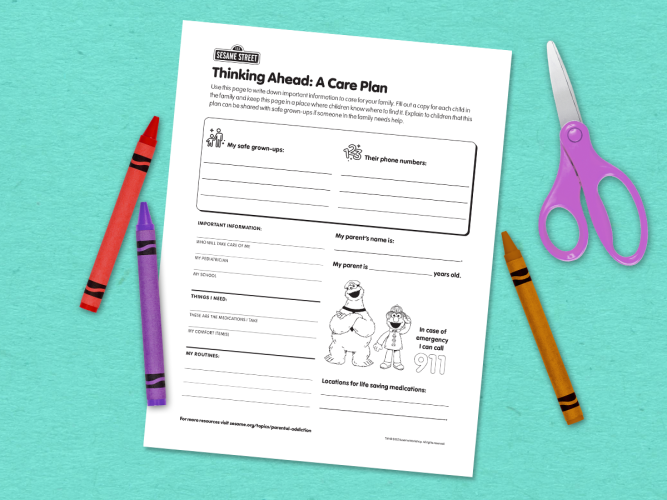
Thinking Ahead: A Care Plan
A printable page to help plan for children’s care in case of unexpected challenges.
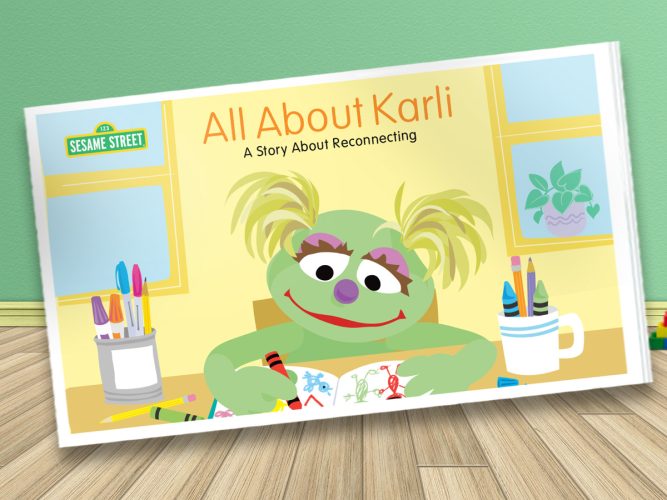
All About Karli: A Story About Reconnecting
A story about reconnecting after a parent and child’s time apart during recovery from addiction.
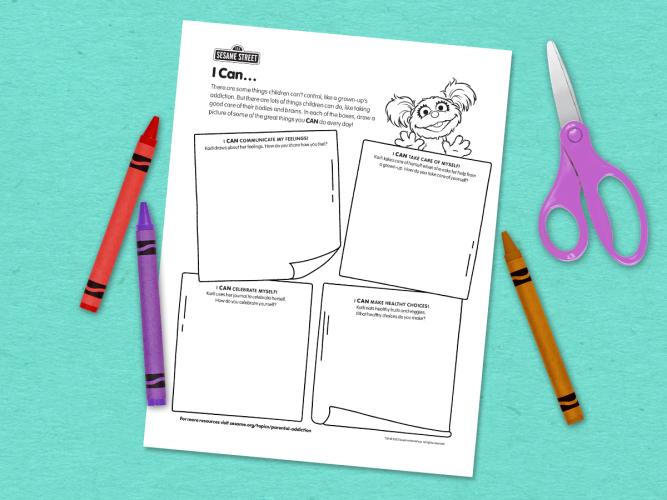
I Can Take Good Care of Myself
A printable page to remind children of all the ways they care for themselves.
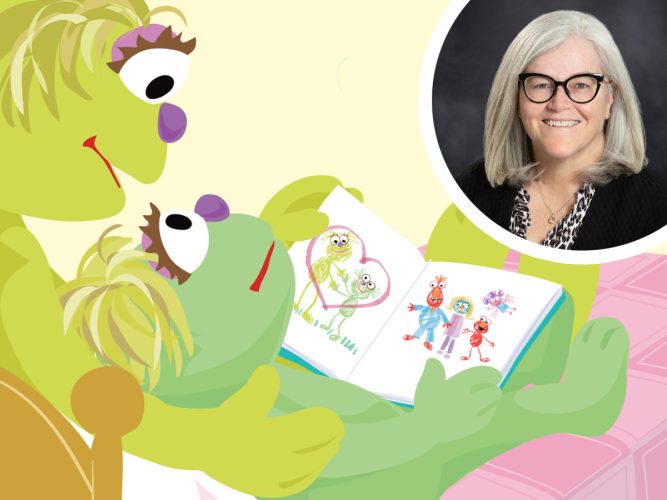
Supporting Whole Family Recovery with Sesame Street
A heartfelt and practical discussion on what it means to reunify as a family after treatment for addiction.
